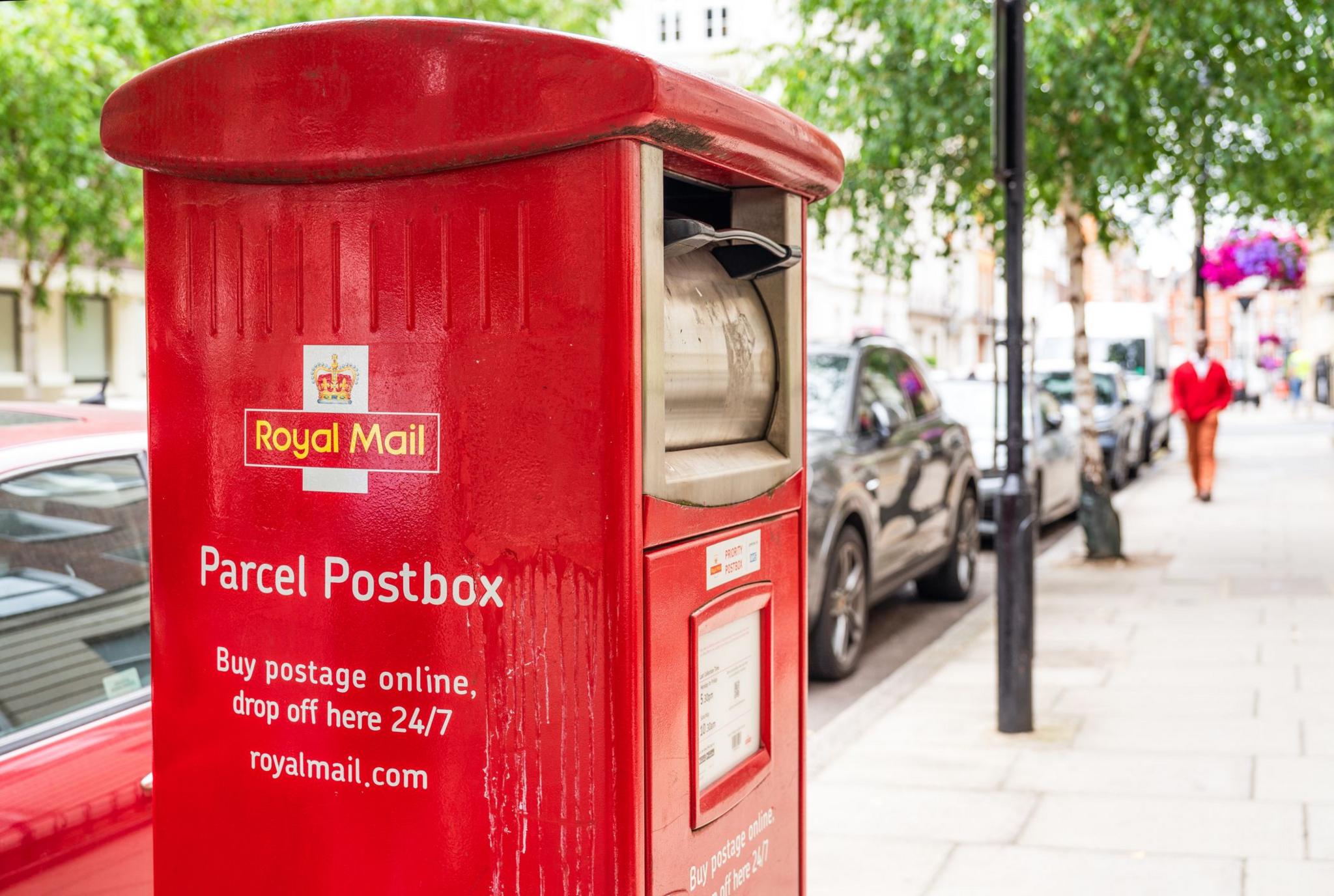Royal Mail in profit for first time in three years

- Published
Royal Mail has returned a profit for the first time in three years as the company attempts to turn around its fortunes under new owner, Czech billionaire Daniel Kretinsky.
In its first set of results since being taken over in April, Royal Mail reported annual profits of £12m, excluding redundancy costs, compared with a £336m loss.
Last month, Royal Mail stopped delivering second-class letters on Saturdays in some areas, estimating it will take up to a year and a half to fully implement the changes.
The firm has had a difficult few years, losing money and market share amid declines in letters being sent. It has also been hit by strikes and a steep fine for missing delivery targets.
The 500-year-old firm, which was bought by Mr Kretinsky's EP Group, is making attempts to modernise, shifting its focus to more profitable parcel deliveries.
Over the year to 31 March, Royal Mail parcel volumes increased 6% while letters declined 4%.
Martin Seidenberg, chief executive of International Distribution Services (IDS), which owns Royal Mail, said the return to profit marked an "important milestone in the company's turnaround".
"Under the ownership of EP Group we will continue to invest in the rapid expansion of our out of home network across both businesses to meet the changing needs of our customers around the globe," he added.
Taking into account redundancy costs, Royal Mail made a loss of £8m in the year to March.
Last week, Royal Mail said it would roll out 3,500 solar-powered postboxes across the UK to enable customers to deposit small parcels.
'Undelivered letters meant my son missed his surgery'
- Published26 February 2024
Solar-powered postboxes being rolled out across UK
- Published27 August
The curious case of why a billionaire wants to buy Royal Mail
- Published14 April
The takeover by Mr Kretinsky, who owns stakes in West Ham United football club and supermarket Sainsbury's, marked the first time Royal Mail has been taken into foreign ownership.
Royal Mail was founded by Henry VIII and still carries the royal cipher on its vans.
EP Group has agreed to maintain the one-price-goes-anywhere Universal Service Obligation (USO), which currently means it has to deliver letters six days per week, Monday to Saturday, and parcels Monday to Friday.
But the USO is currently under review, with Royal Mail suggesting to regulator Ofcom that reducing second-class deliveries to every other weekday would save up to £300m a year and give the business "a fighting chance".
The conditions agreed by EP Group include keeping the brand name and Royal Mail's headquarters and tax residency in the UK for the next five years.
The government retained its so-called "golden share" in Royal Mail, which requires it to approve any major changes to the company's ownership, HQ location and tax residency.